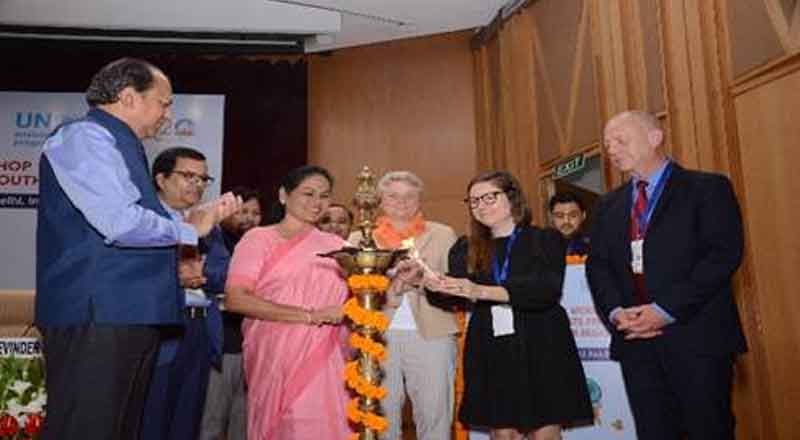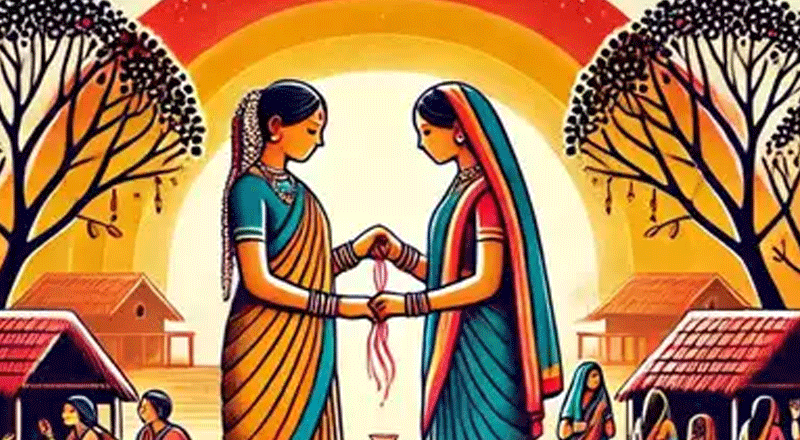Union Minister of State for Agriculture and Farmers’ Welfare Sushri Shobha Karandlaje inaugurated the International Workshop on Food Loss and Waste Prevention in South Asian Region today at New Delhi. The International Workshop on Food Loss and Waste Prevention in South Asian Region was organized jointly by The Indian Council of Agriculture Research and the Thünen Institute, Germany. Deputy Director General (NRM) – ICAR, Dr. SK Chaudhari, Research Director, Thünen Institute, Germany, Dr. Stefan Lange, Deputy Director General (Ag. Engg.) – ICAR, Dr. SN Jha and around 120 delegates from India, Bangladesh, Bhutan, France, Germany, Indonesia, Nepal, and Sri Lanka were present on the occasion.
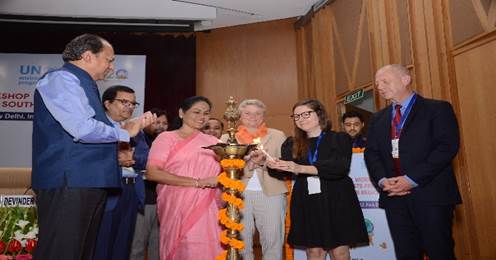
In her address, MoS Sushri Shobha Karandlaje appreciated the efforts made by ICAR and Thünen Institute, Germany to address an important social and economic issue concerning both to the farmers and the consumers. She stated that approximately 3 billion tonnes of food go waste across the globe. She outlined the scale of problem of food loss and waste. She opined that the proven technologies and practices of developed as well as developing countries should be brought forward so that the losses and wastage across the globe could be reduced using methods acceptable to the society. She also emphasised that the social organizations need to play a vital role in spreading awareness among various stakeholders and also should practice the methods to minimise food waste. She also pointed out that loss of food is not only a direct loss to the consumers but also has bearings on environment and supporting economies.
Sushri Shobha Karandlaje said that south Asia a major producer as well as consumer of food and it is our moral responsibility as well as economic necessity to reduce the food loss and waste. She called to identify the primary reasons of food loss and waste; education and awareness among all the stakeholders; efficient harvest and storage; smart distribution; industry involvement; donation and food banks; innovation in food packaging; and consumer responsibility, etc. She emphasized that wasting food is a crime and exhorted all to teach our children the importance of not wasting food. She was hopeful that the three-days workshop would help us plan and act together to arrive at some meaningful policy.
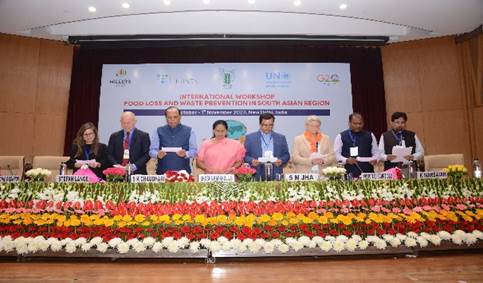
Dr. Stefan Lange mentioned that mitigating and preventing food loss and food waste is the biggest and most effective lever to ensure that food reaches to the needy. He further informed that a “Collaboration Initiative on Food Losses & Food Wastes” has been functioning to promote the global exchange of research results and practical experience in fighting food losses and waste. Government of India can play a vital role in influencing all neighbouring countries in initiating individual as well as collaborative efforts to curb food loss and waste.
Ms. Clementine O’Connor of United Nations Environment Programme, France appraised about food losses and waste metrics and its effect on sustainability of agriculture and environment. She pointed out that pandemic, climate change and wars also have serious bearing on food loss and waste. She emphasised for policy development to ensure learning and sharing of the best practices across the globe and to create awareness among consumers. She reminded that only a few years are left to achieve the sustainable development of goal 12.3 to reduce the food losses to half by 2030.
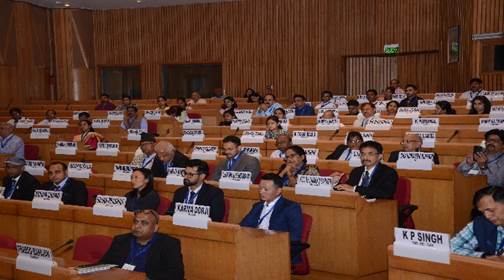
Dr. K Narsaiah, ADG (PE), ICAR made an introductory presentation on historical perspective of food losses and gave examples of indigenous methods for preventing food loss and waste practiced by various societies across the globe. All the delegates took a pledge during this session to prevent food loss and waste in families, offices, industries, society and communities.
DDG (NRM), Dr SK Chaudhari and Deputy Director General (Ag. Engg.) from ICAR, Dr. SN Jha welcomed all the guests and delegates and informed the house that Post-harvest losses and Food Waste varies among geographies in the world. It largely depends on the crops and commodities, duration of storage, climate, technological interventions, human behavior, traditions etc. During the G20-MACS held in Varanasi, April 2023; a bilateral meeting was held between India and Germany in which both the countries decided to organize a regional workshop to address the challenges of Food Loss and Waste understanding that despite the abundant agricultural production, a substantial amount of food is lost or wasted throughout the food supply chain, from production to consumption, and impacts food security and availability, environment, economy and the society; this hold higher significance for South Asian Region, which is a major food producer as well as consumer of food. He shared that around 74 million tonnes of food is lost in India every year, which, if saved, can make many people richer.


